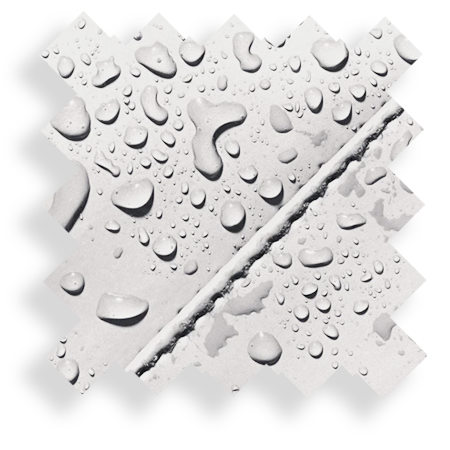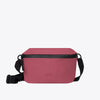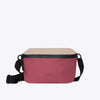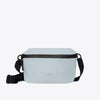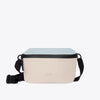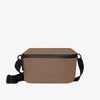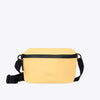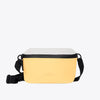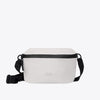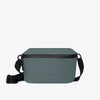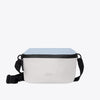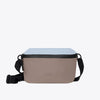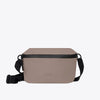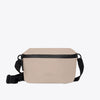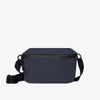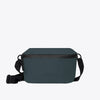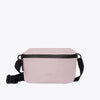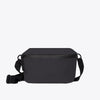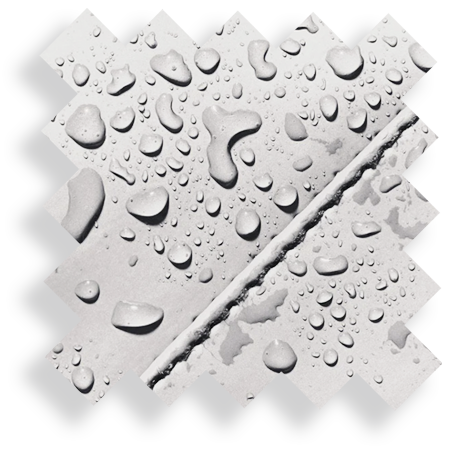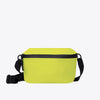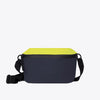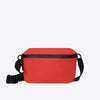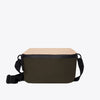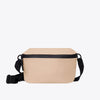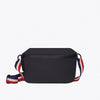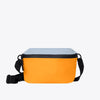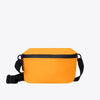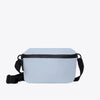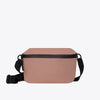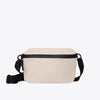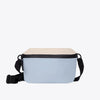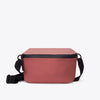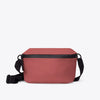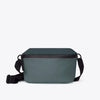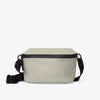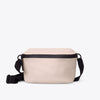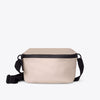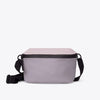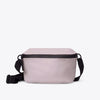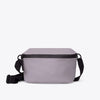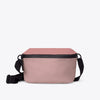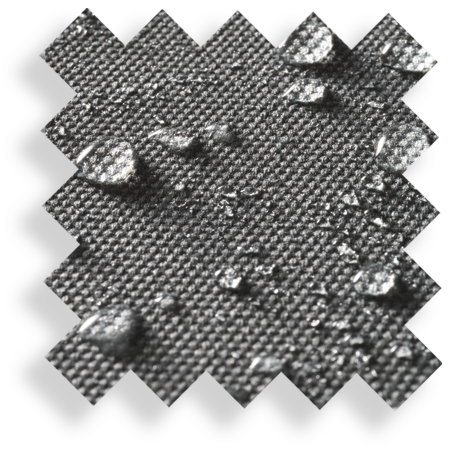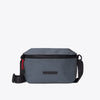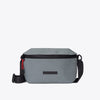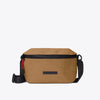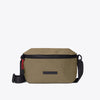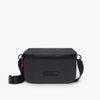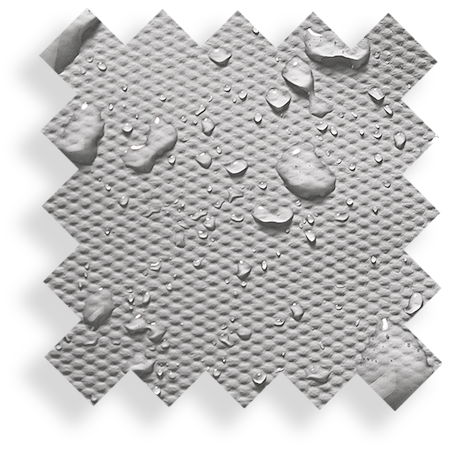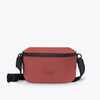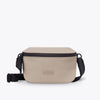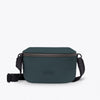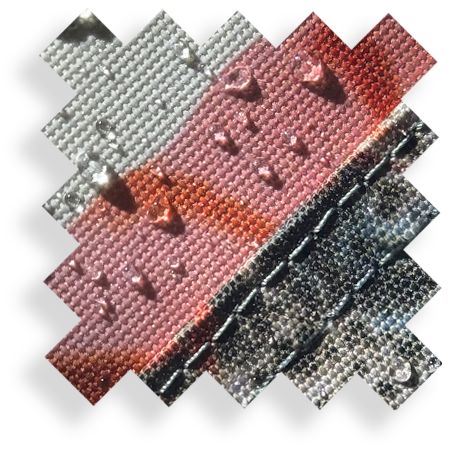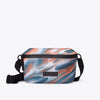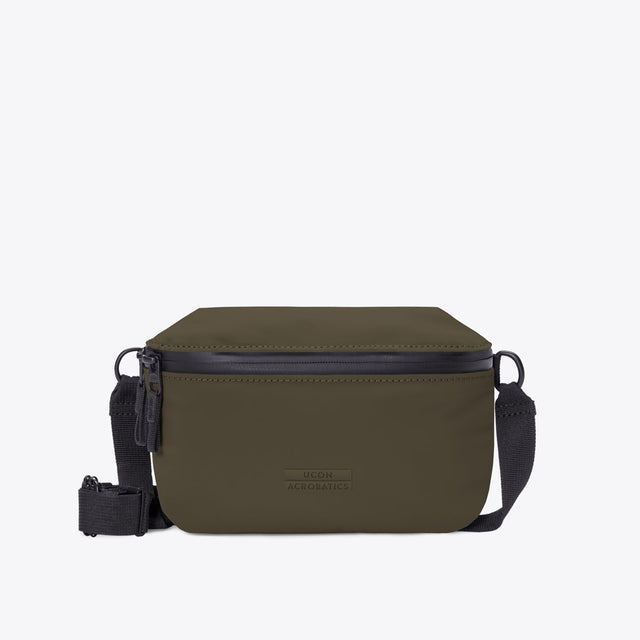
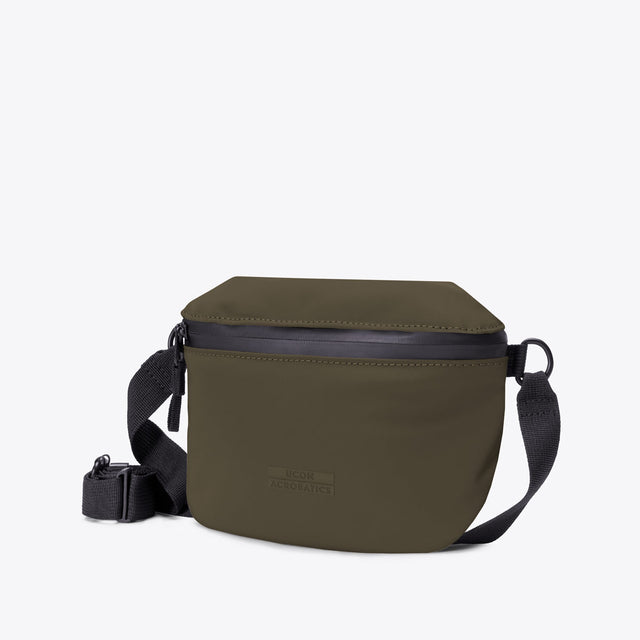






Jona Medium Bag
Ein urbaner Klassiker mit ikonischer Silhouette. Der Jona Bag wurde in Berlin entworfen und ist gemacht für das Leben in Bewegung – zwischen Fahrrad, Büro und Alltag in der Stadt. Die große Zipper-Öffnung sorgt für schnellen Zugriff. Das kompakte Format trägt sich leicht und nah am Körper. Wertsachen sind dabei immer gut geschützt und jederzeit erreichbar. Der zeitlose Look ist perfekt für alle, die Wert auf minimalistische Ästhetik und Alltagstauglichkeit legen.
Die Moss Serie definiert Tragekomfort, Schutz und verantwortungsbewusstes Design neu. Geformt wie eine Wolke und federleicht gefüllt erinnert die samtige Haptik an natürliches Moos – leicht, super cozy und ganz nebenbei auch noch richtig stylisch. Moss Series ist widerstandsfähig gegen tägliche Abnutzung, Schmutz und Regen – und das mit einem klaren Fokus auf Kreislauffähigkeit. Ästhetik trifft Verantwortung. Ein Statement für Nachhaltigkeit. Weich kann auch bold sein – zeig dich in einem Look, der beides kann.
- Ready to ship
- Free EU delivery over 150€
- Climate neutral shipping

Olive
- Speziell entwickeltes Material von Ucon Acrobatics
- Weich gepolstertes Tech-Material mit schmutzabweisender Außenbeschichtung
- Hergestellt aus recycelten Textilabfällen
- Abstehender 'Ucon Acrobatics' Logo-Druck
- Kann als Crossbody oder Hüfttasche getragen werden
- Hauptfach schließt mit einem wasserabweisenden Zwei-Wege-Reißverschluss
- Zusätzliches Fach auf der Rückseite mit wasserabweisendem Reißverschluss
- Innenliegende Eingrifftasche für Telefon
- Innenliegender Halter für Stifte
- Verstellbare Gurtbänder
Inspiriert von den einzigartigen Eigenschaften von Moos: Die mikrostrukturierte Oberfläche und die wolkenartige Polsterung spiegeln seine sanfte, natürliche Haptik wider. Die Moss Series vereint Mode und Innovation und setzt neue Maßstäbe in nachhaltiger Herstellung.
Das leichte Außenmaterial besteht aus 300D rPET-Gewebe, das zu 90% aus recycelten Textilien gewonnen wird. Es ist beidseitig mit wasserabweisenden Beschichtungen versehen: Eine PU-Schicht auf der Außenseite lässt Regen und Schmutz einfach abperlen, während eine innere PU-Schicht zusätzlichen Schutz bietet.
Die weiche flauschig Füllung sorgt für Stabilität und Komfort und schützt auf natürliche Weise. Im Inneren setzt ein strapazierfähiges 300D rPET-Futter aus 97% recycelten Textilien das nachhaltige Konzept fort. Für den Kreislauf entwickelt – und so pflegeleicht wie Moos selbst. Zeig deine weiche Seite mit dem moosy Look.
Außenmaterial
• 78% 300D rPET, Polyester (rPET) faser-zu-faser recycelt aus post-consumer Textilabfällen, gefärbt im Spinnfärbeverfahren
• 22% Polyurethan (PU)
Innenmaterial
• 97% 300D rPET, Polyester (rPET) faser-zu-faser recycelt aus post-consumer Textilabfällen, gefärbt im Spinnfärbeverfahren
• 3% Polyurethan Beschichtung (PU)
Polstermaterial
• 100% Wattierung, Polyester (PET), ungefärbt
Gurtband
• 100% Polyester (rPET) faser-zu-faser recycelt aus pre-consumer / post-consumer Textilabfällen, gefärbt im Spinnfärbeverfahren
Kunststoffteile
• 100% POM
Reißverschluss von YKK
• Band + Spirale, ~50% Polyester (PET), gefärbt im Spinnfärbeverfahren
• Schieber + Zippergriff, ~50% Zinklegierung, lackiert
Sustainability is deeply rooted in our company’s DNA. As a value-driven company, we share common convictions and want to lead the circular economy in our field.
Design Principles
Our design developments focus on durability, as bags and backpacks are meant to be used daily and intensively for years. Minimalist design is also timeless and, in the best case, extends the usage period.
We consider the impact of production with every new product and the entire life cycle. We thoroughly research materials, processes and emerging technologies to understand and reduce the environmental footprint of each product. In the shift from a linear to a circular economy, all components must undergo a review based on the following criteria:
- Reduced environmental impact
- Longevity
- Recyclability
Mono-Material Products
A mono-material is only composed of a single type of material, so it is typically easier to recycle than products made from different things. Also, the higher the material purity, the less energy is needed for depolymerization (chemical recycling). Our goal is to create products from 100% recycled mono-materials from our own industry - in our case PET from textile waste. The following two recycling methods are essential to make products from old textiles.
Fiber-to-Fiber Recycling
This method is a closed-loop process in which used textile fibers are transformed into new fibers to create new textile products, reduce waste, and maximize material reuse. The following two recycling processes are particularly important for manufacturing our products from used textiles.
1. Mechanical Recycling
We use this textile recycling process for industrial textile waste (Pre-consumer). These leftovers from fabric production are mechanically recycled with little energy input. The resulting fibers are shortened, which is why we use them to produce different types of felt. This can be used in soft form as an inner lining or stiff form instead of hard plastic for reinforcement.
2. Depolymerization
We use this textile recycling process for end consumers’ textile waste (Post-consumer). This is mainly workwear, which also contains a high proportion of polyester. These synthetic fibers are broken down into their original chemical building blocks and used to make new synthetic fibers. Often called chemical recycling, our process is based on saccharification, fermentation and alcoholysis. This process requires more energy and chemicals as mechanical recycling but produces higher-quality recycled fibers for new textiles.
Fiber-to-Filler Recycling
This method is an open-loop process that uses textile waste from the fashion industry with a high polyester content already dyed. These are mainly scraps from sewing factories, downcycled into thick felt elements with little effort and used in invisible areas of the backpack. Such mixed textiles are hard to recycle and often end up in landfills or get burned.
Dope Dye
Dope dyeing is a process that adds color to fibers before they are spun into yarn. The savings are enormous - water consumption is reduced by up to -90%, chemical consumption by up to -80%, energy consumption and CO2e emissions by up to -50%. UV stability is also significantly better, as is color fastness to rubbing.
- Hergestellt in China von Fabriken, die regelmäßig von amfori BSCI auditiert werden
- Bluesign® Systempartnerschaft bedeutet, dass wir schädliche Chemikalien bei der Produktion vermeiden
Enjoy free shipping on all orders over 150€ within the EU. Incoming orders are processed within 24 hours on weekdays and will be dispatched immediately. Our standard shipping within the EU takes a total of 2 to 6 working days, outside the EU shipping takes 8 to 12 working days. When things need to go fast, we also offer an Express option. We ship our parcels with the tariffs 'DHL GoGreen Plus' and 'UPS carbon neutral'. The delivery companies promise to invest in new e-delivery vehicles and compensate the remaining emissions through climate protection projects...
We currently accept payments by Credit Card (Visa, Master Card and Amex), PayPal or Apple Pay.
Nachhaltige Partner
Auszeichnungen
Abonniere unseren Newsletter
Sei der Erste, der über neue Kollektionen und exklusive Angebote informiert wird.
